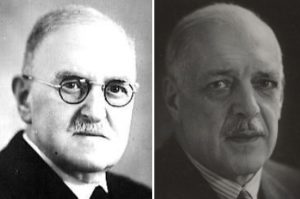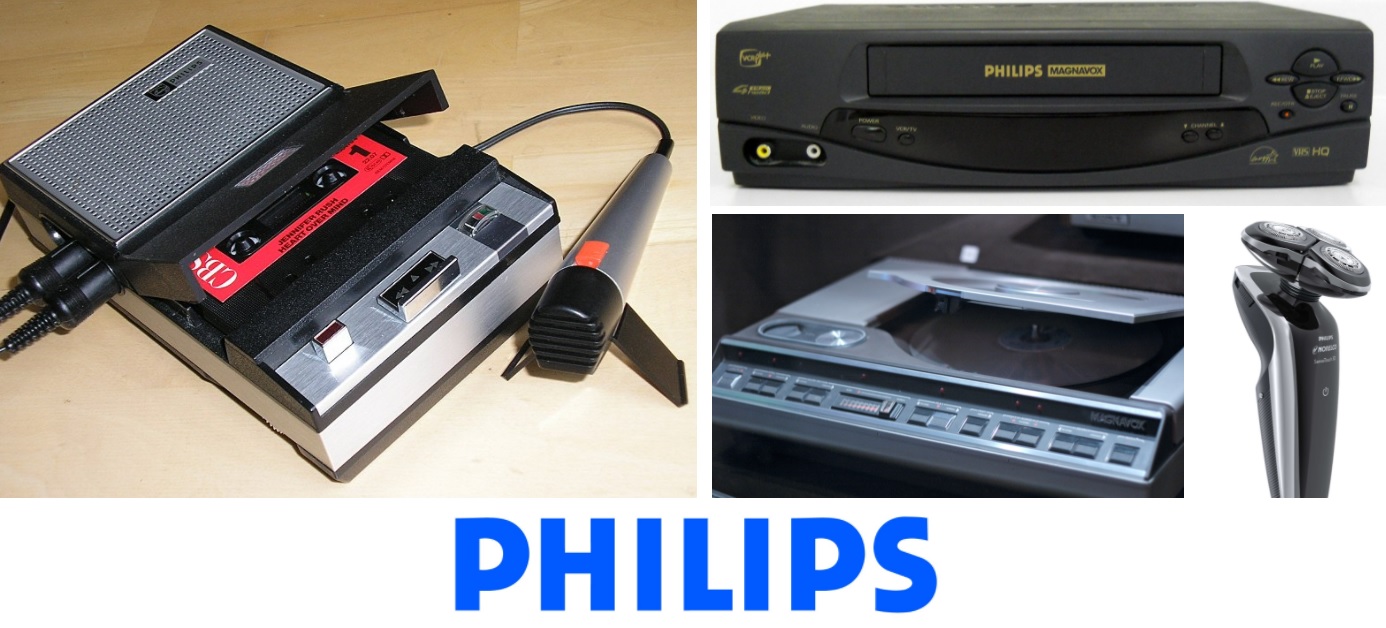
Gerald and Anton Philips
Gerald Leonard Frederik Philips (1858-1942) was born in the Netherlands, the son of a wealthy Dutch-Jewish financier (who was the first cousin of Karl Marx). In 1891, inspired by the recent invention of the light bulb, he decided to open his own light bulb and electronics company. His father purchased an abandoned factory where they set up shop and started producing carbon-filament lamps under the Philips brand the following year. The company did poorly, and nearly went bankrupt before younger brother Anton Frederik Philips (1874-1951) joined the business. A great salesman, with terrific innovations of his own, Anton quickly changed the company’s fortunes. Philips got another boost during World War I, when it filled the void left by the embargo on German electronics. By the 1920s, Philips had become a large corporation, and would soon establish the model for future electronics multinationals. After making their own vacuum tubes and radios, Philips’ introduced a new type of electric razor, the wildly popular Philishave. (It was invented by lead engineer and fellow Jew Alexandre Horowitz.) During the Holocaust, the family fled to the United States and ran the business from there. One son, Frits Philips, remained behind, and spent several months in an internment camp. He would save the lives of 382 Jews that he employed in his factory, convincing the Nazis that they would assist the war effort. In 1963, Philips introduced the compact audio cassette, revolutionizing the world of music forever. They did it again less then a decade later with the first home video cassette recorder. In the 1980s, Philips developed the LaserDisc, and together with Sony, brought about the age of the CD. Similarly, in 1997 Philips and Sony developed the Blu-ray disc. Today, Philips is still the world’s largest lighting manufacturer, employing over 100,000 people, with revenues of nearly €25 billion. In 2012, Greenpeace ranked Philips first among energy companies and tenth among electronics companies for their green initiatives and commitment to sustainability. This is very much in line with Gerald and Anton Philips’ original vision. The brothers were noted philanthropists, and supported many educational and social programs in their native Netherlands.
Words of the Week
Incidentally, Europe owes the Jews no small thanks for making people think more logically and for establishing cleanlier intellectual habits – nobody more so than the Germans, who are a lamentably déraisonnable race who to this day are still in need of having their “heads washed” first. Wherever the Jews have won influence they have taught men to make finer distinctions, more rigorous inferences, and to write in a more luminous and cleanly fashion; their task was ever to bring a people “to listen to raison.”
– Friedrich Nietzsche

A 1968 Philips audio cassette recorder; a Philips Magnavox video recorder; Philishave rotary razor; and an early LaserDisc player model

